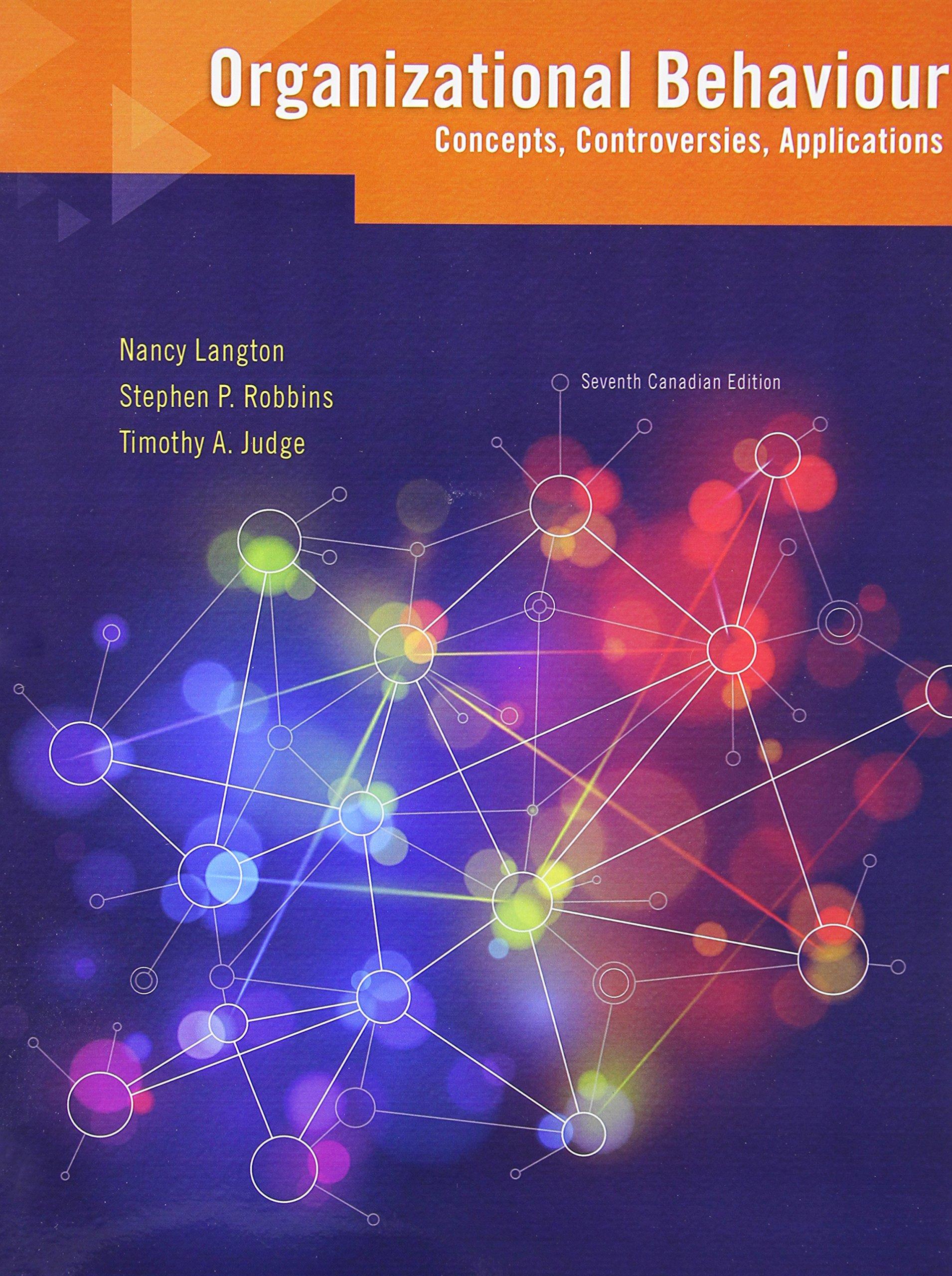It seems like common sense that people work harder when there are incentives at stake, but many
Question:
It seems like common sense that people work harder when there are incentives at stake, but many scholars question this premise. Alfie Kohn has long suggested that employees are “punished by rewards” and urges that organizations avoid tying rewards to performance because of the negative consequences that can result. As an alternative to rewards, some experts recommend that managers foster a positive, upbeat work environment in hopes that enthusiasm will translate into motivation.
Although rewards can be motivating, they can reduce employees’ intrinsic interest in the tasks they are doing.
Along these lines, Mark Lepper of Stanford Univers found that children rewarded for drawing with felt-tip pens no longer wished to use the pens at all when rewards were removed, whereas children who were not rewarded for using the pens were eager to use them. And neuroimaging researchers found that when incentives reached a certain threshold, the brain’s reward centre began to shut down and people became distracted. According to Vikram Chib, the lead researcher on the project, people begin to worry about losing the carrot when the stakes get too high, which leads to failure.
Rewards can also lead to misbehaviour by employees.
Psychologist Edward Deci notes, “Once you start making people’s rewards dependent on outcomes rather than behaviors, the evidence is people will take the shortest route to those outcomes.” Consider factory employees paid purely based on the number of units they produce. Because only quantity is rewarded, they may neglect quality.
Executives rewarded strictly on the basis of the quarterly stock price will tend to ignore the long-term profitability and survival of the firm; they might even engage in illegal or unethical behaviour to increase their compensation.
Some rewards may also have legal implications. An increasing number of companies, such as Whole Foods, are providing financial rewards to employees who meet health goals or participate in wellness programs, but such efforts raise concerns about discrimination against those unable to reach the goals. Incentives might not motivate employees to take a more active role in managing their health in any case.
As David Anderson, vice-president and chief health officer at StayWell Health Management, says, “An incentive itself doesn’t necessarily buy engagement. It buys compliance.”
However, the majority of research cited in this and the previous chapter shows that individuals given rewards for behaviour will be more likely to engage in the rewarded behaviours. It’s also unlikely that individuals engaged in very boring, repetitive tasks will lose their intrinsic motivation if the task is rewarded because they never had any intrinsic motivation to begin with. The real issue for managers is finding an appropriate way to reward behaviours so that desired behaviour is increased while less-desired behaviour is decreased.
Questions
1. Do you think that, as a manager, you should use incentives regularly? Why or why not?
2. Can you think of a time in your own life when the possibility of receiving an incentive reduced your motivation?
3. What employee behaviours do you think might be best encouraged by offering incentive rewards?
Step by Step Answer:

Organizational Behaviour Concepts Controversies Applications
ISBN: 9780134048901
7th Canadian Edition
Authors: Nancy Langton, Stephen P. Robbins, Timothy A. Judge





